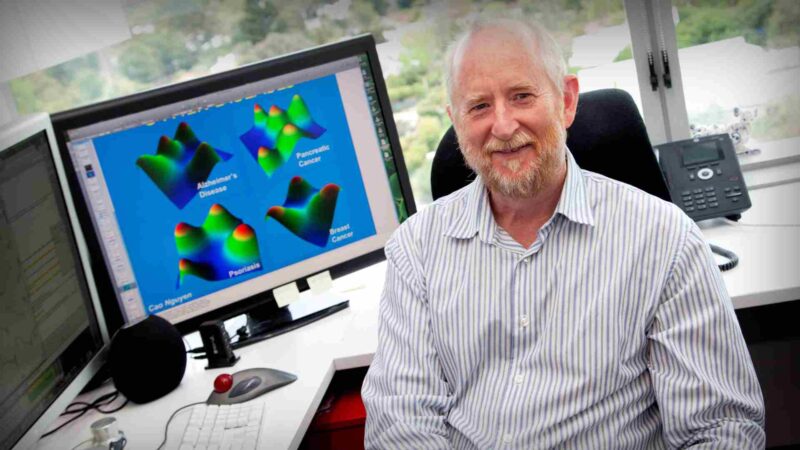SUPPORTIVE CARE FOR PEOPLE LIVING WITH OR BEYOND CANCER TREATMENT
Dr Hannah Wardill, Hospital Research Foundation Fellow, University of Adelaide & Head of Supportive Oncology Group (Precision Cancer Medicine)
SAHMRI (South Australian Health and Medical Research Institute)
RESEARCHER PROFILE
Filmed in Adelaide, South Australia | January 2025
Dr Hannah Wardill is a Hospital Research Foundation Fellow and lead of the Supportive Oncology Research Group (SORG), in the School of Biomedicine, University of Adelaide and Precision Cancer Medicine Theme, South Australian Health and Medical Research Institute (SAHMRI). She is an Executive Board Member of the Multinational Association for Supportive Care in Cancer / International Society for Oral Oncology (MASCC/ISOO) and Chair of both MASCC/ISOO Patient Partnership Committee & the Palliative Care Clinical Studies Collaborative (PaCCSC) Cancer Symptom Trials (Gut Dysfunction Node; supported by Cancer Australia).
While her research started in understanding how chemotherapy damages gut health, Dr Wardill’s research program has now expanded to include a range of symptoms and side effects including neuropathy, cognitive impairment, infection and malnutrition.
A fierce advocate for supportive cancer care, Dr Wardill is working to improve the visibility of this research area and remind people that optimal cancer control can (and should) involve high quality, evidence-based supportive care to ensure people living with or beyond cancer can live happy and fulfilling lives.
You Might also like
-
Investigating invasive lobular carcinoma and metaplastic breast cancer sub-types
Assoc Prof McCart Reed is the scientific lead on an MRFF-funded (Medical Research Future Fund) genomics program investigating the potential for the application of Whole Genome Sequencing in the breast cancer care pathway in Australia, ‘Q-IMPROvE’. She applies genomics and spatial transcriptomics methodologies to archival clinical samples to understand the differences between tumour types and their potential for treatment. Amy is passionate about clinical research, biobanking and precision oncology. In addition to her breast cancer research portfolio, she is on the steering committee for the Brisbane Breast Bank and the Scientific Advisory Board for Breast Cancer Trials.
-
CASE STUDY Role of Exercise in Metabolic Associated Fatty Liver Disease
Dr. Shelley Keating AES AEP* is an Accredited Exercise Physiologist, a researcher, and a senior lecturer at the School of Human Movement and Nutrition Sciences at the University of Queensland in Brisbane, Australia. Dr. Keating’s research primarily focuses on the role of exercise in the management of metabolic dysfunction associated steatotic liver disease (MASLD), previously known as non-alcoholic fatty liver disease. MASLD affects a significant portion of the global adult population, with many individuals unaware of their condition.
-
Systems genetics to determine risk of developing diabetes complications
Dr Mara Zeissig is a recently appointed Lab Head within the Tumour Inflammation and Immunotherapy Program at the South Australian immunoGENomics Cancer Institute (SAiGENCI).
Her research focuses on studying immune evasion mechanisms in lung and pancreatic cancers to identify novel ways to increase response to immunotherapy. Her expertise is in genetically engineered mouse models of lung cancer, CRISPR-Cas9 screening technologies and T cell based immunotherapies (e.g Checkpoint inhibitors).

 https://orcid.org/0000-0002-6613-3661
https://orcid.org/0000-0002-6613-3661


